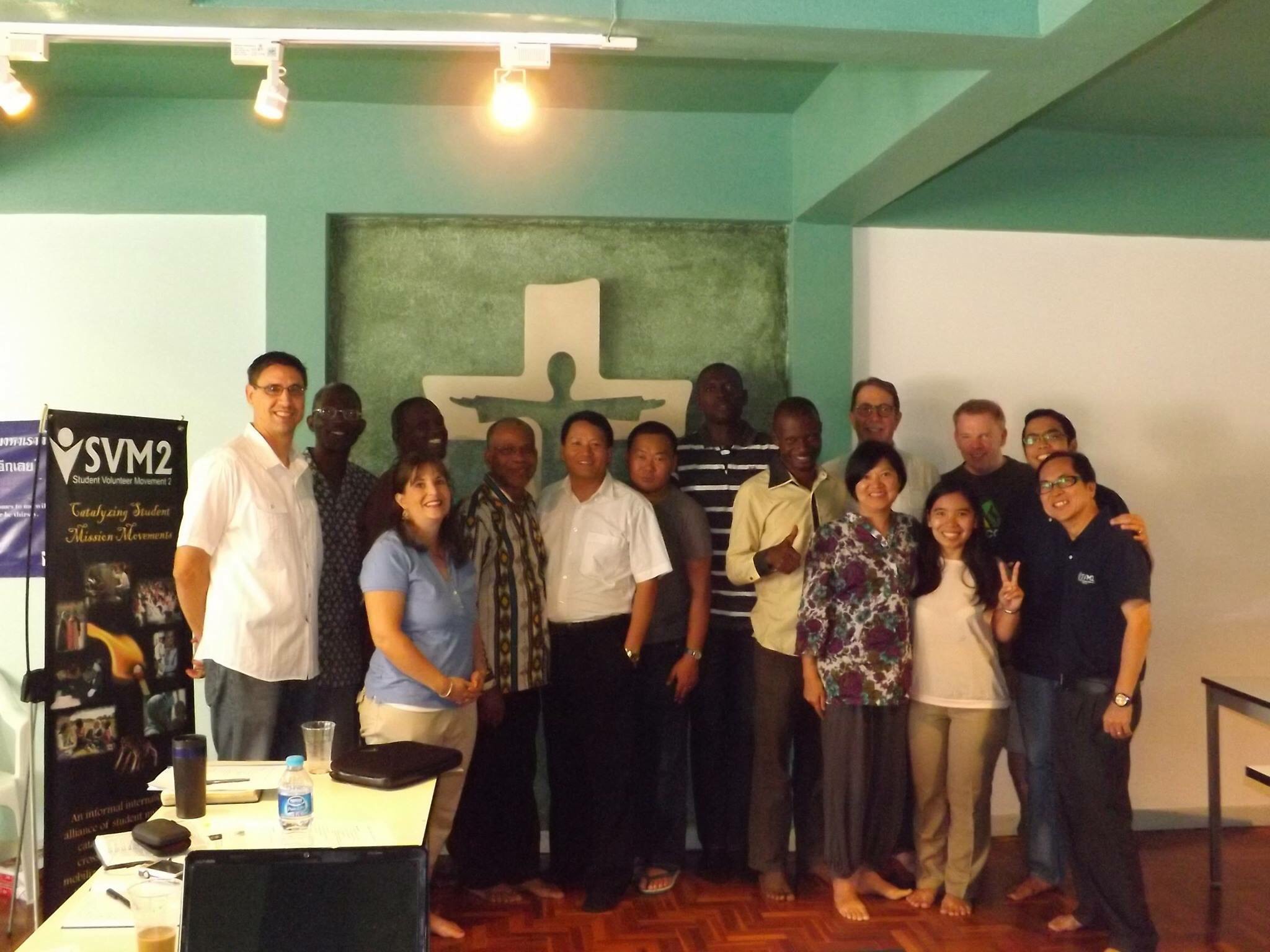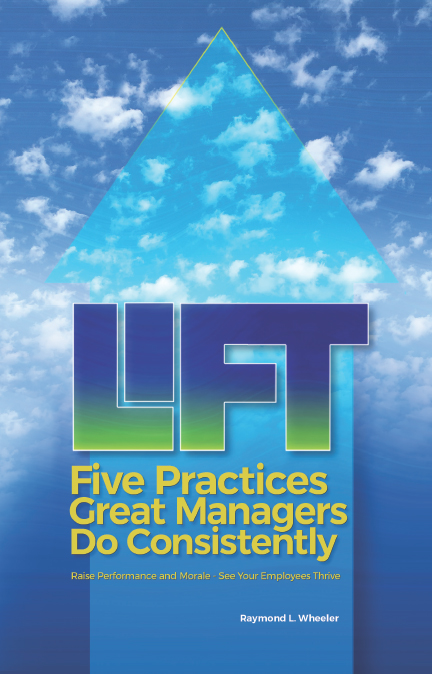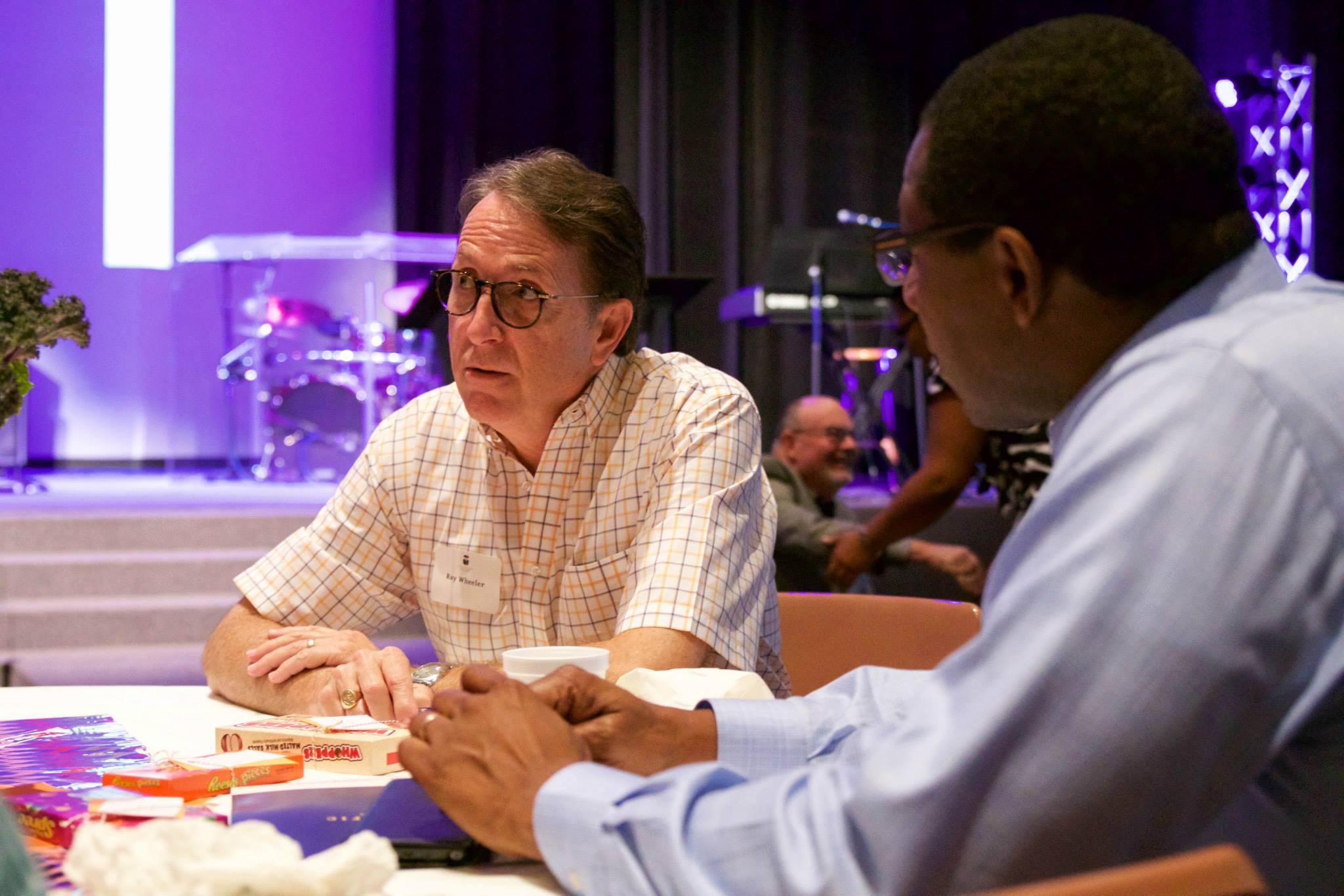
I said in Part 1 that the assumptions we carry into exegetical work influence how we frame our understanding of Scripture. When the assumed model of prophetic ministry articulates its metaphors from Israel’s kingdom period, one’s language and demeanor may trend to dominionist illustrations and proclamations. Conversely, framing prophetic ministry from the premise of being aliens and strangers tends to use differences as a starting point for dialogue and the demonstration of God’s intervening love.
I am intrigued by seeing how prophetic ministry works holistically for the well-being of the context. In reading through the life of Elisha this week, the diversity of social settings and situations he addressed caught my attention. The categories of influence may correlate to the seven social spheres of power, but the record provides its own, and at times, more compelling, classifications of prophetic ministry.
Defining reliable and valid prophetic ministry requires defining what I mean by prophetic. Often the word, prophetic brings to mind fortune-telling or magical incantations. In contrast, what I mean by prophetic are actions and statements that give insight into God’s nature and intention. Bobby Clinton’s definition of prophecy is a helpful starting point.
Prophecy is the capacity to deliver truth (in a public way) either of a predictive nature or as a situational word from God to correct by exhorting, edifying, or consoling people or to convince non-believers of God’s truth. The central thrust is to provide correction or perspective on a situation.[1]
In my view, the impact of valid and reliable prophetic ministry is critically needed today, which is why the function requires a model. Modeled behaviors are mentoring and discerning behaviors. Models help us recognize patterns and scope. Models are like a road sign encouraging us on the path of discovery and practice.
I find Elisha to be a compelling and holistic model of prophetic ministry. What are the traits of an effective and holistic prophetic ministry? As I outline these characteristics, it occurs to me that some do not make much sense to us who live in privilege in the west. However, these characteristics are profoundly relevant and comforting for friends of mine who live under corrupt regimes,or in the middle of war zones, or in neighborhoods under the thumb of oppressive gangs.
Healed the environment. I’m intrigued by this. The men of Jerico expressed their concern to Elisha about the bad water in the area. It limited the potential of their otherwise pleasant situation. Elisha prophesied healing to the water. (2 Kings 2:19-22) Environmental issues about today. Entire neighborhoods languish with both pollution and crumbling infrastructure. God cares about ecological issues recognizing that cities cannot thrive in environmental hindrances. Prophetic ministry understands that one impediment to hearing the good news of Jesus is the struggle to survive.
Castigated intimidation, violence, and incivility. This text exposes our frame of reference in a unique way. The text is troubling for the severity of its consequences if, like me, you grew up in the relative safety of the suburbs here in the United States. My initial picture of these children accosting Elisha with name-calling is that of a group of cub scouts who escaped the supervision of their den mother. If on the other hand you have grown up in neighborhoods ruled by gang violence this text is profoundly comforting. These children and youth accosted Elisha with intimidating insults (translations don’t give it justice).[2] They followed Elisha out of the city to a more remote part of the road to intimidate and bully him with jeering threats.[3] (2 Kings 2:23-25) That he responds by acknowledging their insignificance to him (a possible understanding of the word “small” in the text) is the prelude to his dismissing their threats by an appeal to the power of God. Their incivility and intimidation met with the harshest consequences. In his response, Elisha elevated the value of others who exist in the image of God. Prophetic ministry stands opposed to the tyranny of threats and intimidation that seek to rob people of their dignity and freedom.
Spoke truth to power. Speaking truth to power has two aspects; encouragement and dissent. In the ministry of Elisha we see both. When the King of Israel faced the insurrection of a vassal state, he enlisted the King of Judah to help him squelch the rebellion. Jehosaphat, King of Judah, asked the council of Elisha before entering the battle. Elijah affirmed that the combined armies would gain victory. (2 Kings 3:12-27) Elisha’s encouragement of Jehosaphat points to the need leaders have for an outside voice in the face of threats and challenges for perspective. However, the story ends in the devastation of the enemy’s land and a child sacrifice made by the enemies of Israel to thwart their attack. The disgust engendered by this desperate act sent the armies of Israel packing. I take the story as a warning – even good council may bring about unintended results with devastating consequences. The text doesn’t take these consequences up. The political arena’s power, ambition, and compromise predictably distort outcomes. Before his death, Elisha was visited by king Joash. Elisha challenged Joash to act out the victory God intended to give him over the Syrian threat he faced. Joash met with Elisha’s dissent when Joash failed to carry through on the exercise. (2 Kings 13:14-19) Elisha also demonstrates dissent in obeying God in sending an envoy to anoint Jehu king – an act that God used to complete the judgment on the house of Ahab for his rebellion to God. (2Kings9:1-13). It seems obvious, but what Elisha predicted in each of these encounters happened – fulfilled predictions also validate prophetic ministry.
Meet physical needs. Food, health, and housing were all addressed by Elisha in the power of God. Elisha decontaminated a poisoned stew in 2 Kings 4:38-41. He meets a widow’s housing needs by providing her with a miraculous means of revenue in 2 Kings 4:1-7. He healed a leprous foreigner in 2 Kings 5:1-16. As a result of these actions of divine provision, people experienced the reality of God’s presence and love. Valid prophetic ministry often works among the poor and marginalized. Note that the subject of these miraculous acts included a single-parent family, foreigners, and a religious community, groups often unseen by social power.
Acted on emotional needs. One of the most touching stories from the life of Elisha to me is the Shunammite woman who, with her husband, served as a recurring host to Elisha’s visits. When he asked her what she would like in return for her hospitality Elisha’s servant pointed out that the couple was childless. 2Kings 4:1-17. Elisha prophesied she would have a son. She did have a son who then died in his preadolescent years. The woman was devasted and called for Elisha to come to raise her son from the dead – Elisha did. (2Kings 4:18-37) The event touches me because I have sat with numerous couples as they lamented their inability to have children. The grief is profound. Elisha saw God’s great compassion for this woman and acted on it. Later, Elisha warned her to flee the area about to enter a time of famine. She did, and her family survived the famine and later had all their property restored. (2 Kings 8:1-6)
Affirmed healthy social interaction. Elisha was with a group of prophets gathering lumber to expand their facility. One of the men used a borrowed ax. In work, the ax head loosened from the handle and flew into the Jordon River. The young man became distraught at losing a borrowed ax. As a result of Elisha’s intervention, the iron head floated back to the man on the water. (2 Kings 6:1-7) The respect for property ownership and the relationship that allowed the young man to borrow the ax resulted in a miraculous encounter. We aren’t told what the relationship of the ax owner was to the sons of the prophets. But we see that the relationship was meaningful enough for God to act through Elisha to save it.
Confronted conflicts of interest. Following the healing of Naaman, the leper Elisha turned down Naaman’s offer for a reward. This didn’t keep Gehazi (Elisha’s valet) from pursuing Naaman to take the reward for himself in the false premise that Elisha had sent him for the tip to give it to two needy prophets. (2 Kings 5:20-27) Gehazi violated his position of trust by manipulating the power of Elisha’s reputation. Elisha confronted Gehazi for his action, and as a consequence of Gehazi’s abuse of power, he fell ill with leprosy. Elisha made his ethical stand clear and refused to tolerate any compromise or receive gratuitous rewards due to God’s work.
Exposed maleficent intentions. The king of Syria intended to defeat Israel. (2 Kings 6:8-14) However, every strategy the king of Syria formed with his servant was revealed to Elisha by God. Elisha then forewarned the king of Israel, who escaped more than one entrapment. Politics and posturing exist in every group of people and make for strange bedfellows. In this case, prophetic ministry exposed such posturing and made way for the king of Israel to escape disaster.
Reinforced the humanity of enemies. The Syrian invasion forestalled by Elisha’s prophetic insight into Syria’s strategies angered the Syrian king to the point he repositioned his strategy to capture Elisha. The king sent troops to Dothan to surround the city and eliminate Elisha. (2 Kings 6:11-23) When Elisha’s servant Gehazi saw the Syrian troops, he panicked, Elisha prayed, and Gehazi could then see the armies of God surrounding the Syrian forces. Elisha then asked God to blind the Syrian troops. Blind and unable to fight, Elisha led the Syrians to Samaria and then prayed God would open their eyes. The Syrians saw that they were defenseless in the capital of their enemy. Elisha fed them and sent them home rather than kill them, as the king of Israel wanted to do. What does this unique event suggest about prophetic ministry? Prophetic ministry does not minimize threat but exercises mercy on the defenseless, forgiveness toward enemies, and reinforces the humanity of others.
If the characteristics of Elisha’s ministry are generalizable, which I think they are, then behaviors that contradict these traits are susceptible to censure. To illustrate contradictions, I reviewed news stories and websites that express the opposite of Elisha’s work. I reject those claims to prophetic ministry that behaviorally contradict the traits of valid and reliable prophetic ministry.
| Traits of Elisha’s Ministry | Contradictions |
| Healed the environment | The idea that “dominion” is a free pass to exploit higher polluting resources like coal, oil, and natural gas without concern for the environment’s detrimental impacts. (cf., https://www.motherjones.com/environment/2018/03/scott-pruitt-has-laid-bare-the-growing-environmental-schism-within-christianity/). |
| Castigated intimidation, violence, and incivility | What does give one pause, however, is the unwillingness on the part of so many evangelical Christians to condemn abuse when it does occur. (cf., https://reformedjournal.com/evangelicals-lets-talk-about-violence-against-women/). When Evangelicals ignore gang violence or excuse it as an inherent trait of minority populations a contradiction emerges. |
| Spoke truth to power | This era’s evangelical leaders do not speak truth to power but seek access to power. The ancient Hebrew prophets might call on them to repent — a tough demand for those utterly convinced of their righteousness. (cf., https://www.mcall.com/opinion/readers-react/mc-opi-let-motsay-evangelical-leaders-20190626-srm5wzeikzgyloq4tkeuqc5vmm-story.html). |
| Meet physical needs | Evangelicals look at the personal dimensions of poverty. But the sins that cause a person to be in poverty may be the sins of others, not of the person who is poor. Conservative Christians need to acknowledge that more often as they have a very inadequate understanding of the structural dimension of sin. (cf., https://www.washingtonpost.com/news/acts-of-faith/wp/2017/08/03/christians-are-more-than-twice-as-likely-to-blame-a-persons-poverty-on-lack-of-effort/) |
| Acted on emotional needs | Everything you feel in evangelical circles must be filtered through the right words and expressions. For example, you can talk about your feelings, but can’t show them. You can admit you’ve been going through “struggles,” but can’t break down and sob or have a panic attack or say, “life sucks.” (cf., https://www.theodysseyonline.com/evangelicals-emotional-labor). |
| Affirmed healthy social interaction | And once we lose the ability to communicate about things, about which we disagree, we begin to isolate ourselves, we begin to stop the effort for progress or moral progress, finding ways to introduce policy that does honor human dignity. (cf., https://cct.biola.edu/church-incivility-happened-honoring-everyone/) |
| Confronted conflicts of interest | The Association of Certified Fraud Examiners defines fraud as “any intentional or deliberate act to deprive another of property or money by guile, deception or other unfair means.” Many Christians would be surprised and disappointed to learn that such behavior was occurring in their church or favorite ministry. (cf., https://www.ecfa.org/Content/Fraud-in-Ministries-Real-Examples-and-Red-Flags). |
| Exposed maleficent intentions | Hamilton County prosecutors told an appeals court that church officials have made “misleading and inaccurate” statements about records they were ordered to share last year. (cf., https://www.poynter.org/reporting-editing/2003/church-accused-of-hiding-evidence/) |
| Reinforced the humanity of enemies | Rhetoric that stereotypes to incite fear and reaction, e.g., language referring to liberals, LGBTQ community, Islam, the poor, etc. Christians have too often opted for a harsh approach to interacting with public communities. How can we get back to the concept of honoring everyone, regardless of their status or religious and cultural perspectives? (cf., https://cct.biola.edu/church-incivility-happened-honoring-everyone/). |
To conclude, I love the longing of Moses when told two of the 70 elders he appointed were not present at the commissioning meeting but were nonetheless prophesying. Joshua wanted Moses to stop them. However, Moses replied, “Are you jealous for my sake? Would that all the Lord’s people were prophets, that the Lord would put his Spirit on them!”
[1] Dr. J. Robert Clinton and Dr. Richard W. Clinton. Unlocking Your Giftedness: what leaders need to know to develop themselves and others. Altadena, CA: Barnabas Publishers, 1998.
[2] The idea of children in gangs is a recognized problem. See, https://www.aacap.org/AACAP/Families_and_Youth/Facts_for_Families/FFF-Guide/Children-and-Gangs-098.aspx.
[3] Mordechai Cogan and Hyim Tadmore. The Anchor Bible: II Kings. New York, NY: Doubleday and Company, Inc. 1988:39.









